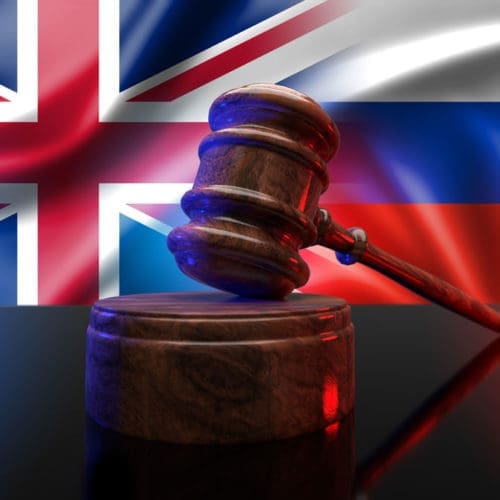Ignorance is no excuse: Strict liability introduced into UK sanctions enforcement
June 2022Introduction
With effect from 15 June 2022, new changes will take effect in relation to the enforcement against breaches of UK trade sanctions legislation. This coincides with an ever-growing set of sanctions measures issued by the UK Government against the Putin regime, taken in response to the invasion of Ukraine.
The Office of Financial Sanctions Implementation (“OFSI”) is a division of HM Treasury responsible for the implementation of the trade sanctions regime. The Policing and Crime Act 2017 (“PCA”) gave OFSI powers to issue monetary fines directly where it discovered an infringement of the applicable rules. As the examples below illustrate, OFSI has not been shy about wielding these powers.
Until now, OFSI has been required to show not only that there has been a breach, but also that the defendant knew that to be the case. OFSI does not need to go to court to apply the fine, although defendants do have a right of appeal.
Following the invasion, HM Government passed the Economic Crime (Transparency and Enforcement) Act 2022, which made significant enhancements to OFSI’s powers, with the aim of empowering the UK sanctions watchdog to respond swiftly to financial sanctions breaches.
What is changing?
Under the existing rules OFSI may, pursuant to Section 146 of the PCA “impose a monetary penalty on a person if it is satisfied, on the balance of probabilities, that-
(a) the person has breached a prohibition, or failed to comply with an obligation, that is imposed by or under financial sanctions legislation, and
(b) the person knew, or had reasonable cause to suspect, that the person was in breach of the prohibition or (as the case may be) had failed to comply with the obligation.”
With effect from 15 June, paragraph (b) will be removed from the legislation. Considering that the relevant person had knowledge of the breach (or ought to have had) will no longer be a pre-requisite to issuing fines.
The burden of proof for establishing a breach of financial sanctions prohibitions will remain with OFSI. This aligns this component of UK financial sanctions legislation with the legal test used for arms import and export, as well as the US financial sanctions approach.
What is the maximum of the fine that may be imposed?
The permitted maximum of the fine which OFSI may impose will remain the higher of-
(a) £1,000,000, and
(b) 50% of the estimated value of the funds or resources.
In any other case, the permitted maximum is £1,000,000. The following are examples of enforcement actions brought by OFSI and related penalties:
- Standard Chartered Bank was fined £20.47 million for infringing the EU Council Regulation 833/2014, Ukraine (European Union Financial Sanctions) (No.3) Regulations 2014;
- TransferGo Limited was fined £50,000 for violating The Ukraine (European Union Financial Sanctions) (No. 2) Regulations 2014 for making funds available to a designated person without a licence;
- Telia Carrier UK Limited was fined £146,341 for infringing Council Regulations (EU) No 36/2012 enforced by the Syria (European Union Financial Sanctions) Regulations 2012 (S.I. 2012 No 129) for making funds available to a designated person without a licence;
- Clear Junction Limited was fined £36,393 for infringing The Ukraine (European Union Financial Sanctions) (No. 2) Regulations 2014 (making funds available to a designated person, without a licence).
Has OFSI issued guidance on how it will use its new powers?
Yes, OFSI’s updated guidance is available here: updated monetary penalty guidance .
The guidance emphasises that the legislative changes do not mean that OFSI will impose a monetary penalty in whenever it discovers a breach. Monetary penalties are imposed only where appropriate, proportionate and in the public interest to do so. That will continue to be the approach taken after 15 June 2022.
Broadly, the more aggravating factors OFSI sees, the more likely it is that they will levy a monetary penalty. The more serious the breach, and the worse the conduct of the individuals, the heavier any punishment is likely to be. The following factors will be taken into account by OFSI:
- Whether the individual or organisation know their conduct amounted to a breach of the rules. If they did, this will be an aggravating factor. Note, as discussed above, OFSI does not need to prove knowledge but will take this into account when deciding whether or not to impose a fine.
- Whether the individual or organisation has self-reported the infringement. Prompt self-reporting is a mitigating factor;
- Whether there has been a repeated pattern of breaches (recidivism being an aggravating factor)
- Whether the individual or organisation has co-operated with an investigation (including providing information to OFSI when requested)
- OFSI will consider the risk of harm to the objectives of the sanctions regime. The greater the risk of harm to the regime’s objectives, the more seriously it will regard a case
Are there other potential consequences of breaching sanctions rules?
Yes, any breach of the trade sanctions prohibitions also carries the risk of criminal prosecution. Offences carry the risk of up to 10 years’ imprisonment or a fine (or both). As the “captains of the ship”, directors and officers may be particularly exposed where a company is found to have fallen foul of the law.
What does this mean for your business?
The change in legislation has been motivated to signal a hard stance against violations. The change in the rules will give the regulator a freer hand and reduce the scope for contesting fines. Coupled with the desire for an uncompromising line on Russian aggression, we may well see an increased number of enforcement actions.
Against that backdrop, businesses should ask themselves whether they are geared up to ensure compliance. The best way is having in place a sanctions compliance policy. Knowing your trading partners is an important component in any effective program, as is training to ensure directors and employees are aware of their obligations. Ignorance will no longer shield organisations from the risk of penalties under the rules.
Download PDF







